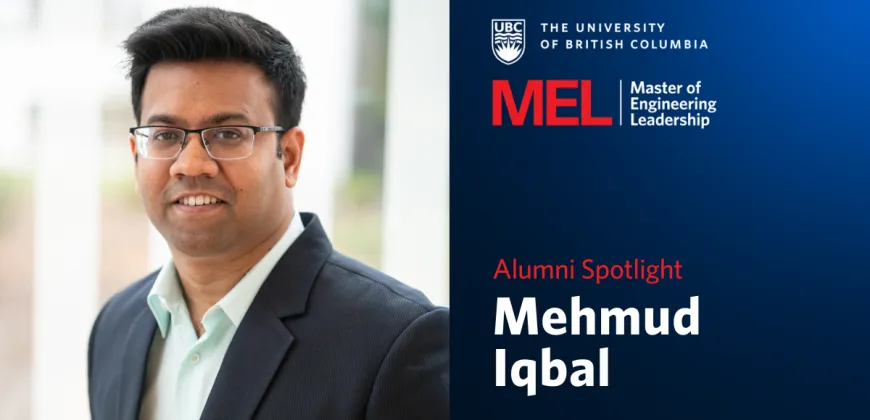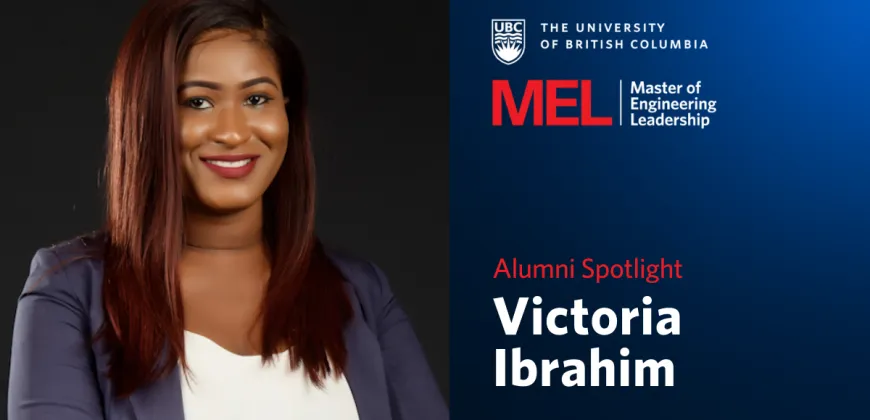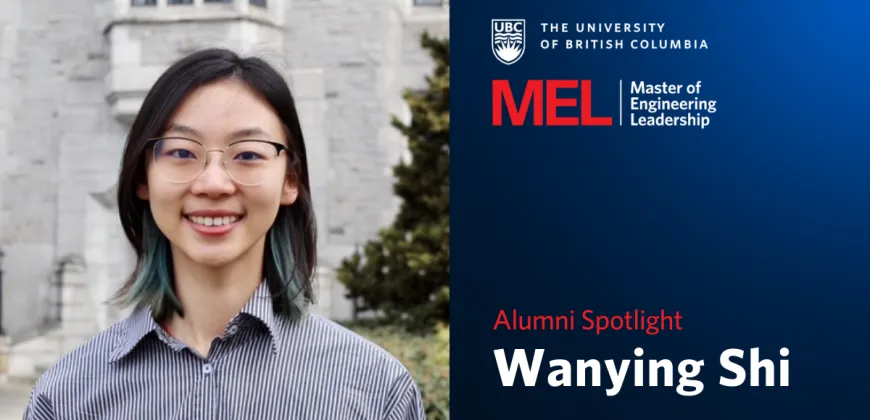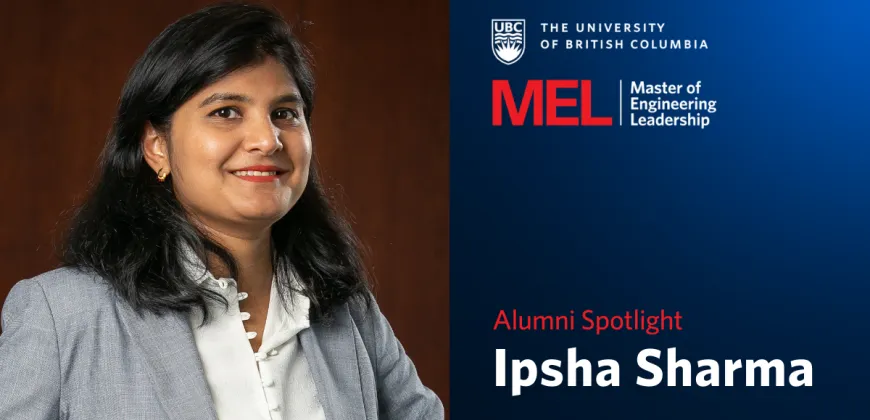Alumni Spotlight: Mehmud Iqbal
The MEL in Clean Energy Engineering gave Mehmud Iqbal the knowledge and credentials he needed to begin working in a new field – using his technical and business skills to evaluate innovative technologies and help consumers make the shift to clean energy solutions for their homes and businesses.

With more than 11 years of experience working in the oil and gas industry, Mehmud Iqbal has unique insight into the challenges our world faces to be more energy efficient and to move from conventional energy systems to low carbon intensity energy sources.
“There are many ways that oil and gas operations can be improved to reduce emissions and be more energy efficient,” he says. “However, there isn’t a lot of motivation for many of these operators to do so unless strict regulations are in effect – and regulations change from country to country.”
Mehmud is originally from Bangladesh, and he’s seen the devastating economic and human impact of the increasing number of natural disasters. “One of the reasons for the increased frequency of these disasters is climate change. I believe we can do something about it if we change our approach to energy generation and use.
This is the prime motivation for changing my career: I had the right skill set and needed some additional experience to shift into the clean energy industry.”
When he researched postgraduate programs in the clean energy space, he says that UBC’s Master of Engineering Leadership (MEL) in Clean Energy Engineering came out at the top of the list.
Courses provide a broad overview of the clean energy sector
The MEL in Clean Energy Engineering is an interdisciplinary program that includes both technical and business concepts. Mehmud says he particularly enjoyed the technical courses, which encouraged him to see transformative opportunities in hydrogen and renewable natural gas, as well as energy efficiency.
“Energy-efficient systems allow you to get more output from the energy you are consuming, and doing so can have an enormous economic and environmental impact,” he says.
“Implementing energy-efficient measures in your home, for example, can allow you to use less energy for space heating or domestic hot water usage, without compromising your comfort level and enabling you to save more money.”
He says that the technical classes covered a wide range of topics, from sustainable energy systems and transmission to energy conservation. “These courses open your eyes to all these concepts and increase your knowledge of the latest developments that are being made in each area.”
Examining hydrogen production methods in a capstone project
Clean Energy Engineering students complete a capstone project in their final semester. While some projects are arranged by program instructors, students are also encouraged to connect with industry leaders to pursue a project of particular interest to them.
Mehmud reached out to several companies in BC’s hydrogen sector, ultimately landing a position at Hydra Energy. Over the four months of the project, he worked with the company to explore alternative and cost-effective hydrogen production processes such as methane pyrolysis, biomass gasification and electrolysis. (Read a synopsis of his capstone project.)
“The capstone project helped me better understand the challenges facing the hydrogen industry,” he says. “It was a significant opportunity to gain exposure in this field.”
Working in the clean energy field
A few months after completing his degree, Mehmud was hired as a Conservation & Energy Management Program Specialist at FortisBC, where he is responsible for designing pilot programs to help introduce new, innovative, energy-efficient technologies to the utility company’s customers.
He explains that his job involves identifying potential energy-efficient technologies for FortisBC rebate programs and conducting pilot programs to help evaluate the energy-savings potential and customers’ acceptance of emerging technologies and products, which can result in greater public awareness and adoption.
“It’s an exciting and interesting position because many of the technologies that we’re piloting are not yet commercially available,” he says. “At the end of the day, there’s the satisfaction of running pilot projects that validate the effectiveness of innovative solutions and help FortisBC customers achieve their climate action goals.”
He says the MEL degree is well-known in the industry and that several MEL graduates are working at FortisBC.
“The value of this degree is that it helps you update your core knowledge of the latest advances in the industry. It’s then up to you to develop further on that foundation to go the extra mile, to go further.”
–
Take the steps to join the next cohort of engineering leaders. If you haven’t already, assess your eligibility and sign up for the upcoming information session to learn how to submit a strong application. Learn more about this innovative master’s program:



